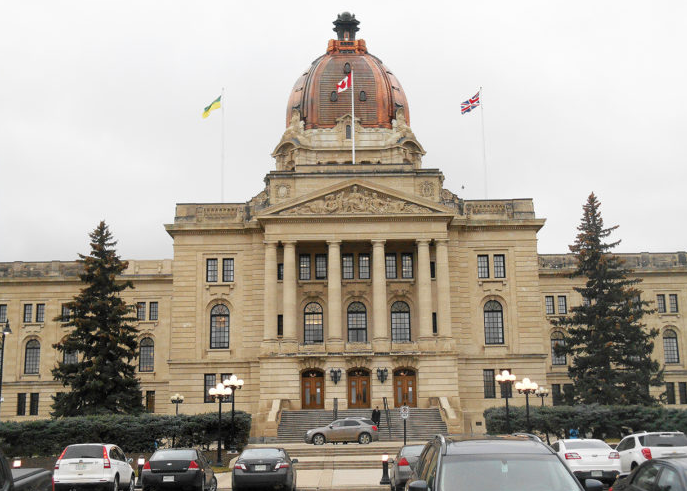The Saskatchewan Party delivered on its promise of a balanced budget, presenting a document with a slim $34.4 million surplus Wednesday. The document also projects larger surpluses of $49 million, $72 million and $84 million for the next three fiscal years.
Finance Minister Donna Harpauer stood up in the Legislative Assembly to present the 2019-20 budget at about 2:30 p.m.
“This budget is the right balance for Saskatchewan,” Harpauer said Wednesday. “(It) provides an increase in support in almost every area.”
The province is projecting an increase in both revenues and expenses but hasn’t planned any tax increases. The only tax changes are a new credit for volunteer firefighters and health first responders and the removal of some exemptions previously provided to the potash industry.
The province said the increase in revenue is driven in part by stronger resource prices, as agriculture and potash are rebounding, while oil and gas are still dragging along.
The removal of some of those potash exemptions combined with stronger prices is leading to a projection of a net increase of $117 million from the potash industry.
That growth, Harpauer said, shows that those tax exemptions work.
“When you do tax incentives that have a goal in mind, they should always be revisited periodically,” she said.
“(This) was our time to ensure that Saskatchewan people were benefitting from what was their resource.”
Other sources of the projected increase in revenue were attributed to tax revenue and Crown corporation earnings. Property and sales taxes are expected to bring in more money as the economy improves.
The province will benefit from the elimination of potash tax deductions that were limiting revenue from potash base payments.
The province did not heed calls from the NDP and from the construction industry to back off a change that removed PST exemptions on construction contracts.
The increase in expenses can be attributed to funding bumps for health, education and social services, as well as to higher debt servicing costs.
While the province is projected to add $1.7 billion in debt from further investment in capital, its operating debt is not increasing this year.
Saskatchewan will also retain the third-lowest debt-to-GDP ratio among Canadian provinces, with only BC and Alberta boasting lower percentages.
The province is projecting real GDP growth of 2.2 per cent per year from 2020 until 2023.
“The province’s economy is strengthening. Our province is growing,” Harpauer said.
“The 2019-20 budget is our governments’ plan to … sustain needed investments in high-quality services for all of Saskatchewan’s people. The 2019-20 budget balances those investments with carefully managed spending and continues to develop a stable, sustainable revenue base without raising taxes.”
Harpauer told reporters that the decision to spend increased revenue on more services as opposed to tax relief came from concerns raised by residents about the need for more services for mental health and addictions and the increase in children coming into the province’s care.
She said that although the balance is slim, it should be well-insulated against potential risks.
“Every single budget, we’re mindful of risk,” she said.
“But we were fairly conservative in our projections in revenues, so we hope we will be able to manage any risk that occurs throughout the fiscal year.”
While Harpauer preached balance, the NDP accused the ruling party of misleading the public as the debt is projected to increase through capital spending. They also said that education remains underfunded.
“It isn’t a balanced budget because you see the debt increase by $1.8 billion, said NDP leader Ryan Meili.
“If you look at how much we’re paying to service that debt, our interest rates have gone up. We’re at $700 million a year, 50 million more than last year. While it might be, by accounting standards, without an explicit deficit, we are seeing a big increase in our debt, set to be … $20,000 or more for each person in Saskatchewan.”
Meili said that while education funding is higher than last year, he accused the Saskatchewan Party of failing to make up fully for funding cut in 2016.
The NDP did welcome increased spending on mental health but called the supports “just a start” from where mental health spending should be in Saskatchewan.


